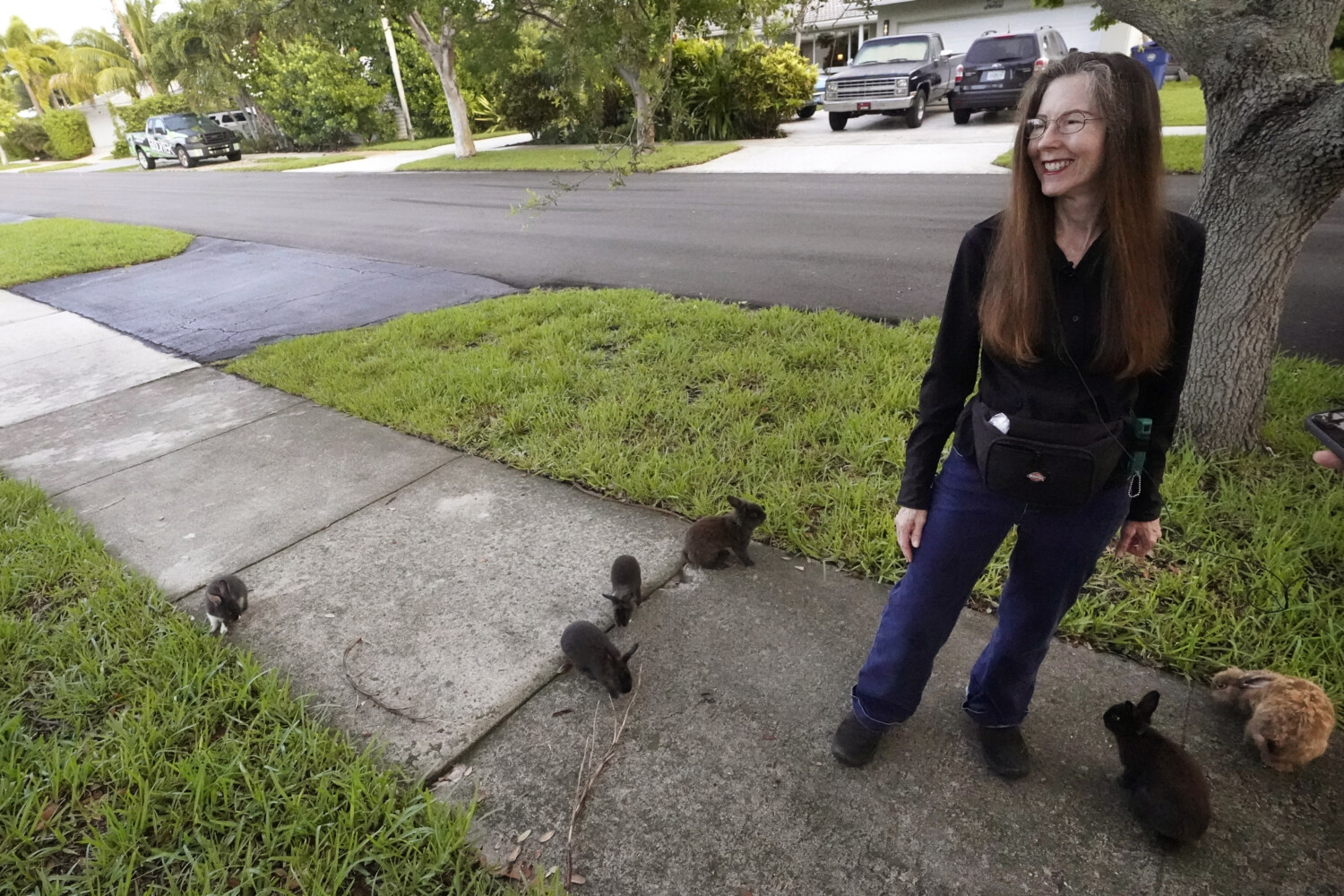Floridians are used to hearing about non-native animals endangering their state. Burmese pythons have been killing off important species in the Everglades for years. The Giant African land snail population has spiked again this year, to the detriment of agriculture and tropical flora. But residents of one Fort Lauderdale community are dealing with the cutest animal invaders of all: A herd of lionhead rabbits.
The invasion began in Jenada Isles, a small community of homes in Wilton Manors just north of Fort Lauderdale. And for now, it seems to be confined there. According to the Associated Press, a breeder in the area raised a group of the rabbits but didn’t take them with her when she moved away a couple of years ago. Since then the bunnies have been doing some breeding of their own, blossoming into a herd of as many as 100. They now roam the community, burrowing into lawns and occasionally chewing up wiring.
As far as animal infestations go, residents acknowledge it isn’t exactly a plague of locusts. Lionhead rabbits are known for their thick, fluffy coats and the Jenada bunnies are often fed by homeowners and curious visitors alike. But their presence in the community isn’t sustainable, either for the residents or the rabbits themselves. Their heavy fur makes them unsuited for life in Florida’s hot climate, and they have little defense against their many natural predators. The Florida Fish and Wildlife Conservation Commission has been contacted, but won’t intervene to remove the rabbits since they aren’t a threat to humans or the surrounding wildlife.

However, there may be hope on the horizon for these adorable creatures thanks to one concerned resident. Alicia Griggs (pictured above) has started a GoFundMe with the aim of placing the rabbits in homes that are capable of caring for them. She estimates it could cost as much as $40,000 to have them treated by a veterinarian, removed and rehomed. As of Friday, July 21, she has raised nearly $20,000.
MORE: Louisiana fisherman spots rare pink dolphins in river
This story originally appeared on Simplemost. Check out Simplemost for additional stories.


